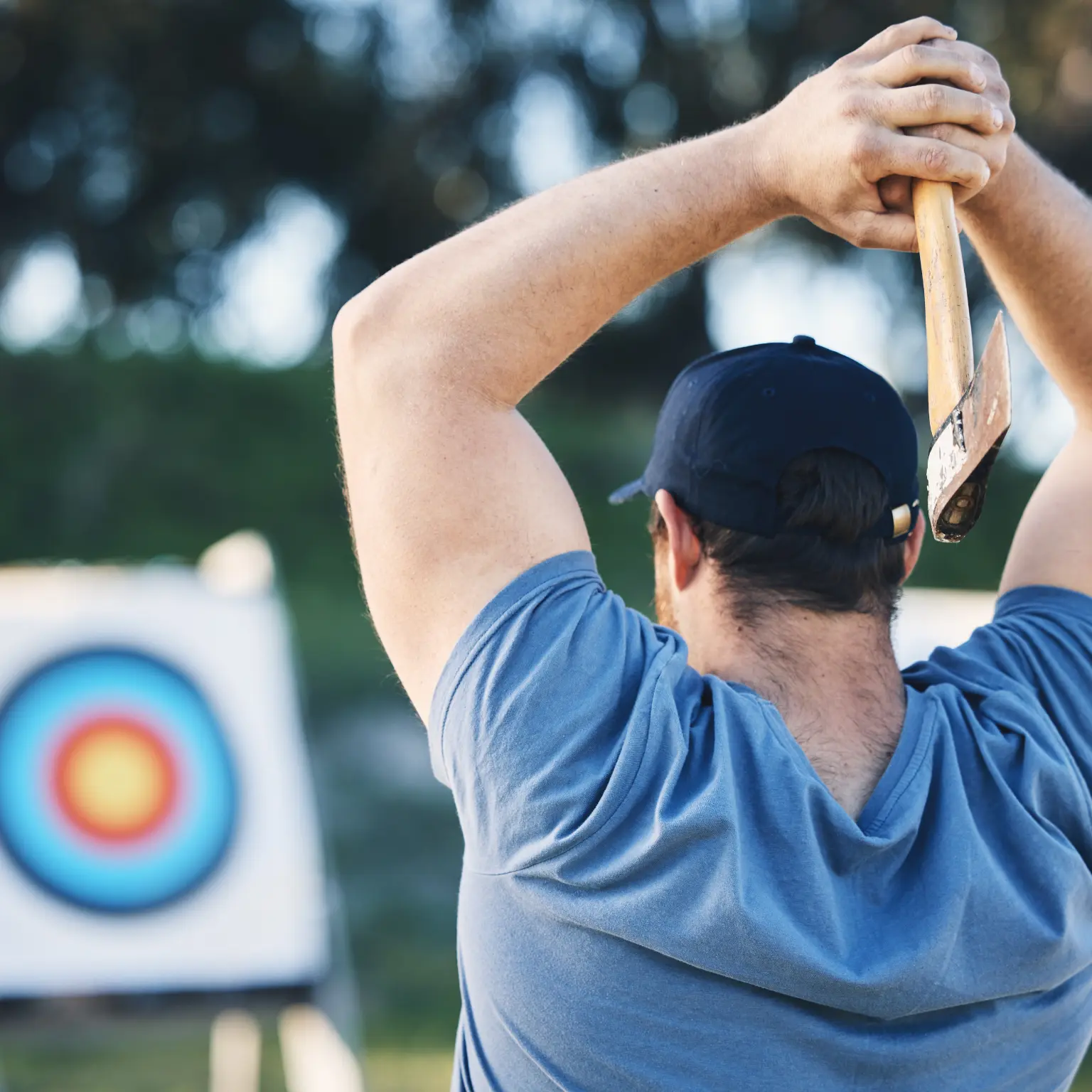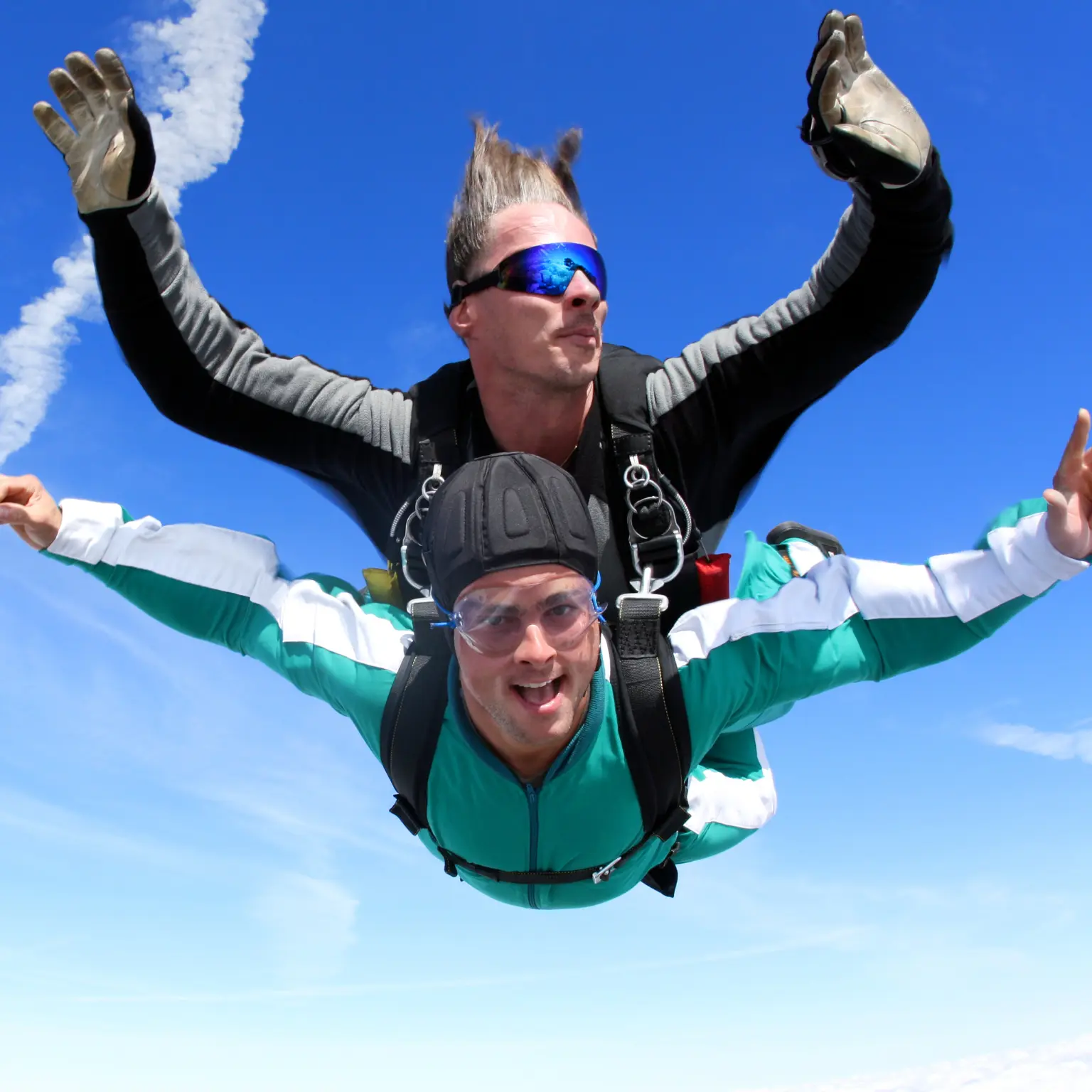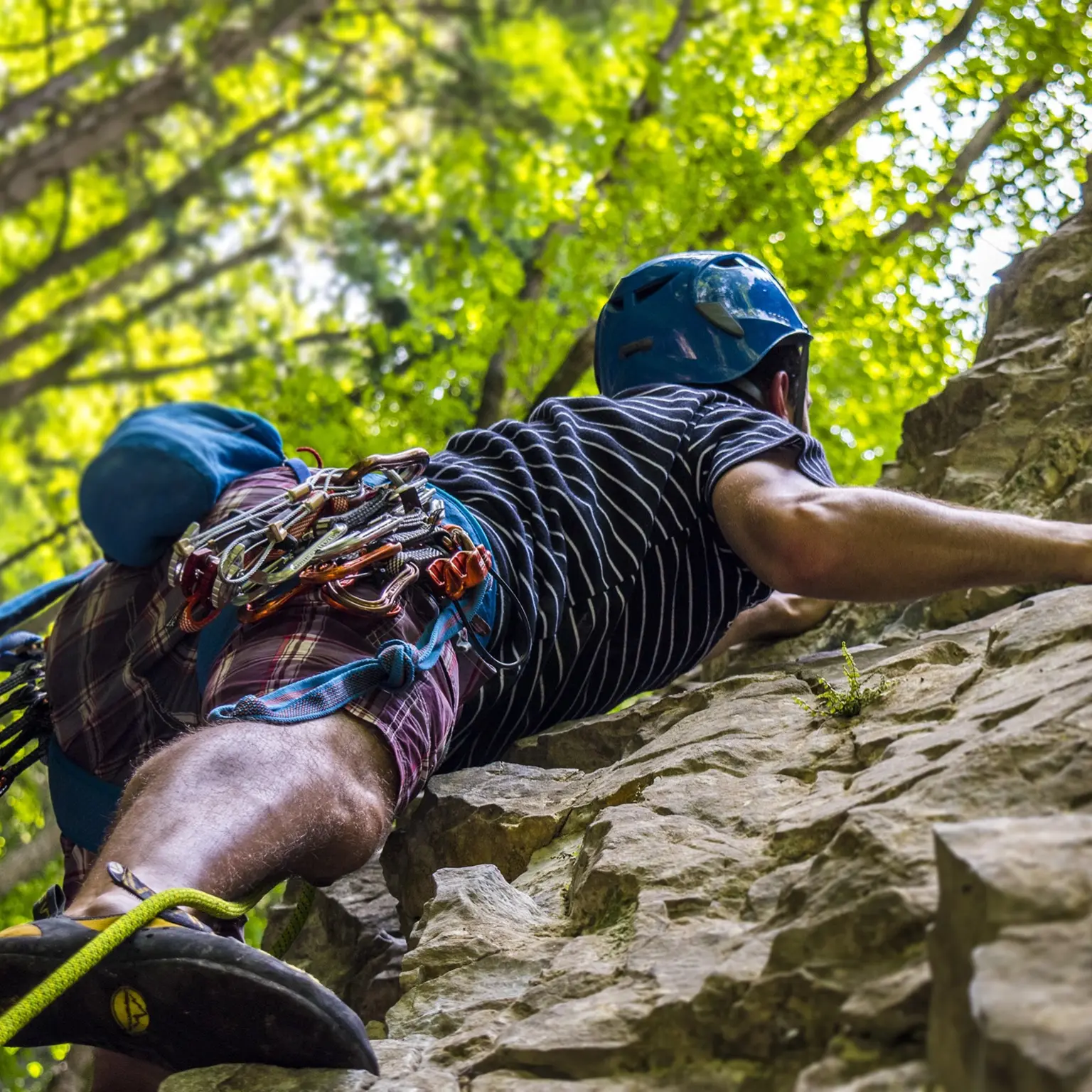Find Your Perfect Sport: A Beginner’s Guide to Active Fun

Remember that feeling of excitement as a child when you’d race around the playground, kick a ball with friends, or dive into the swimming pool? That pure, unadulterated joy of movement is something many of us lose touch with as adults. Life gets busy, responsibilities pile up, and exercise often becomes a chore rather than a source of fun.
But it doesn’t have to be that way. Healthy Stride Wellness believes that finding a sport or physical activity you genuinely enjoy can be a game-changer. It’s the difference between dreading a workout and eagerly anticipating it. It’s about discovering a form of active fun that invigorates your body and mind, leaving you feeling energized and fulfilled.
If you’re a beginner looking to embark on a fitness journey, or simply someone tired of the same old exercise routine, this guide from Healthy Stride Wellness is for you. We’ll delve into the reasons why finding the right sport matters, explore various sports categories, and equip you with a step-by-step approach to discovering your perfect match.
Table of Contents
Key Takeaways
- Your Perfect Sport Awaits: Finding a sport you love is about more than just exercise; it’s about unlocking a world of physical, mental, and social benefits. The right sport can boost your mood, reduce stress, improve your health, and even help you make new friends. It’s about finding an activity that genuinely excites you, so you’re motivated to stay active and have fun.
- Discover What Makes You Tick: Before diving into the world of sports, take a moment to assess your interests, preferences, and goals. Think about what you enjoyed in the past, consider your personality, and explore new possibilities. This self-reflection will guide you toward activities that align with your unique needs and desires.
- Practical Steps to Get Started: Finding your perfect sport involves a blend of research and hands-on experience. Explore various sports categories, weigh the practical factors like cost and accessibility, and then try out different options through trial classes, equipment rentals, or beginner leagues. Don’t be afraid to experiment and have fun along the way!
Why Finding the Right Sport Matters?
Discovering your ideal sport isn’t just about physical fitness; it’s about unlocking a whole new dimension of well-being. Let’s explore why finding the right fit is so crucial:
Beyond the Physical: While physical fitness is undeniably important, sports offer a wide array of benefits that go beyond the gym. Engaging in regular physical activity through sports can:
- Improve Mental Health: Research consistently shows that exercise, especially in a social setting, can reduce stress, anxiety, and depression. The endorphin rush from physical activity is a natural mood booster.
- Foster Social Connections: Team sports or group activities like hiking or cycling clubs create opportunities to meet new people, make friends, and build a supportive community.
- Enhance Quality of Life: Sports can improve sleep, boost energy levels, and increase self-confidence, all of which contribute to a better overall quality of life.
The Fun Factor is Key: The most effective exercise routine is the one you stick to. If you dread your workouts, you’re less likely to maintain them over the long term. Finding a sport that you genuinely enjoy makes exercise feel less like a chore and more like play.
Long-Term Health Benefits: Regular participation in sports can significantly reduce the risk of chronic diseases like heart disease, stroke, type 2 diabetes, and certain types of cancer. It also helps maintain a healthy weight, strengthens bones and muscles, and improves balance and coordination.
Simply put, finding the right sport is an investment in your present and future well-being. It’s about discovering a source of joy, connection, and vitality that can enrich your life in countless ways.
Assessing Your Interests and Needs
Before you dive headfirst into the world of sports, it’s essential to take a moment for self-reflection. Understanding your interests, preferences, and goals will guide you toward activities that you’ll truly enjoy and stick with. Here’s how to get started:
What Do You Enjoy?
- Reflect on Past Experiences: Think back to your childhood or adolescence. Were there any sports or activities that you particularly loved? Did you play on a team, take dance classes, or simply enjoy running around the neighborhood? Revisiting those positive memories can provide valuable clues about what might appeal to you now.
- Consider Your Personality: Are you introverted or extroverted? Do you thrive in competitive environments or prefer a more relaxed, collaborative atmosphere? Do you enjoy structured activities or prefer more free-form movement? Understanding your personality can help you identify sports that align with your natural inclinations.
- Explore New Possibilities: Don’t limit yourself to what you already know. Be open to trying new things and stepping outside your comfort zone. You might be surprised to discover a hidden talent or passion for a sport you never considered before.
What Are Your Goals?
- Fitness Goals: What are you hoping to achieve through sports? Are you looking to lose weight, build muscle, improve endurance, or simply maintain your current fitness level? Identifying your fitness goals will help you narrow down your options and choose a sport that aligns with your aspirations.
- Skill Development: Do you want to learn a new sport from scratch, or do you have an existing interest that you want to develop further? Perhaps you’ve always dreamed of playing tennis, or maybe you want to improve your swimming technique.
- Social Connection: Are you looking to meet new people and build social connections through sports? Team sports, group fitness classes, and recreational leagues can be great ways to expand your social circle and make new friends.
Exploring Different Sports Categories
The world of sports is vast and varied, offering a wide range of options to suit different interests, personalities, and fitness levels. Let’s take a tour of some popular sports categories to spark your imagination and help you narrow down your choices:
Team Sports
What they offer
- Camaraderie and teamwork
- High energy and competitive spirit
- Diverse roles and positions to suit different strengths
Popular examples
- Basketball: Fast-paced, high-scoring game requiring agility, coordination and teamwork.
- Soccer (Football): The world’s most popular sport, known for its strategic play, endurance, and teamwork.
- Volleyball: A dynamic game that combines jumping, spiking, and strategic positioning.
- Softball/Baseball: Classic bat-and-ball games that require hand-eye coordination, strategic thinking, and teamwork.
- Ultimate Frisbee: A non-contact team sport that emphasizes athleticism, teamwork, and spirit of the game.
Individual Sports
What they offer
- Focus on personal achievement and self-improvement
- Opportunity for self-paced learning and development
- Flexibility to train and compete on your schedule
Popular examples
- Running: A versatile sport that can be enjoyed alone or with others, offering cardiovascular benefits and stress relief.
- Swimming: A low-impact, full-body workout that improves cardiovascular health, muscle strength, and endurance.
- Cycling: Whether on road or mountain trails, cycling offers a fun way to explore new places, get fit, and enjoy the outdoors.
- Golf: A precision sport that combines skill, strategy, and mental focus.
- Tennis: A fast-paced game that requires agility, hand-eye coordination, and strategic thinking.
Water Sports
What they offer
- A refreshing and invigorating way to exercise
- Unique opportunities to explore aquatic environments
- Low-impact options for people with joint issues
Popular examples
- Surfing: A thrilling sport that requires balance, coordination, and a love for the ocean.
- Stand-up paddleboarding (SUP): A relaxing and scenic way to explore waterways while getting a full-body workout.
- Sailing: Harness the power of the wind and learn the art of navigation while enjoying the open water.
- Swimming: Already mentioned above, but worth reiterating for its versatility and health benefits.
- Scuba diving or Snorkeling: Explore the underwater world and discover the beauty of coral reefs and marine life.
Racquet Sports
What they offer
- A blend of strategy, hand-eye coordination, and agility
- Opportunities for both singles and doubles play
- Social and competitive aspects
Popular examples
- Tennis: A fast-paced game played on a court with a net, requiring quick reflexes and strategic shot placement.
- Badminton: Similar to tennis but played with a shuttlecock, offering a fun and accessible way to get active.
- Pickleball: A combination of tennis, badminton, and ping pong, gaining popularity for its social and beginner-friendly nature.
- Squash: A fast-paced, indoor racquet sport played on a four-walled court, demanding agility and strategic shot-making.
Mind-Body Sports
What they offer
- A holistic approach to fitness, combining physical movement with mental focus
- Stress reduction, flexibility, and balance improvement
- Mindful practices that promote relaxation and self-awareness
Popular examples
- Yoga: A variety of styles and levels, offering flexibility, strength, and stress reduction through poses and breathing exercises.
- Tai Chi: A gentle martial art known for its flowing movements and focus on balance and coordination.
- Pilates: A low-impact exercise system that focuses on core strength, flexibility, and posture.
Adventure Sports
What they offer
- A thrilling way to challenge yourself and experience the outdoors
- Unique adrenaline rush and sense of accomplishment
- Opportunities to explore new environments and push your limits
Popular examples
- Rock Climbing: Scale natural or artificial rock formations, building strength, problem-solving skills, and confidence.
- Hiking/Backpacking: Explore trails and wilderness areas, connecting with nature and challenging your endurance.
- Mountain Biking: Navigate off-road trails, combining the thrill of cycling with the beauty of nature.
- Surfing: (Mentioned earlier)
- Whitewater Rafting/Kayaking: Navigate challenging rapids, experiencing adrenaline and teamwork.
Seasonal Sports
What they offer
- A chance to embrace the changing seasons and enjoy unique activities
- Variety and opportunities to try different sports throughout the year
- A way to connect with nature and experience the beauty of each season
Popular examples
- Skiing/Snowboarding: Glide down snowy slopes, enjoying the thrill of speed and the beauty of winter landscapes.
- Snowshoeing: Explore snowy trails and forests, get a workout, and enjoy the tranquility of winter.
- Cross-country skiing: A full-body workout that combines cardiovascular fitness with strength and endurance.
Factors to Consider When Choosing a Sport
Now that you have a better understanding of the diverse sports categories available, it’s time to delve deeper into the practical aspects of choosing the right one for you. Several factors can influence your decision, and carefully weighing them can lead you to a sport that you’ll not only enjoy but also stick with in the long run.
Cost: Let’s face it, some sports can be expensive. Consider the cost of equipment (e.g., golf clubs, tennis rackets, bicycles), lessons or coaching fees, gym memberships, and any additional expenses like travel to competitions or events. If you’re on a budget, look for sports with lower entry costs, such as running, swimming, or hiking, which may only require basic gear.
Accessibility: How easily can you access facilities or locations where you can practice your chosen sport? Are there courts, fields, pools, or trails nearby? If not, factor in the travel time and cost. Some sports, like running or yoga, can be done almost anywhere, while others, like skiing or sailing, may require more specialized locations.
Time Commitment: Be realistic about how much time you can dedicate to your new sport. Some sports require regular practice and training sessions, while others can be enjoyed more casually. Consider your work schedule, family commitments, and other obligations when choosing a sport.
Physical Requirements: Assess your current fitness level and physical abilities. Some sports are more physically demanding than others. If you’re just starting, opt for a sport that aligns with your current fitness level and gradually increase the intensity as you get stronger and more skilled.
Social Aspect: Do you prefer to exercise alone, or do you thrive in a group setting? Team sports offer camaraderie and social interaction, while individual sports allow for more independent pursuits.
Personal Preferences: Ultimately, the best sport for you is the one that you find most enjoyable. Think about what kind of environment you prefer, what type of challenge you’re seeking, and what kind of skills you’d like to develop. Do you enjoy being outdoors in nature, or do you prefer indoor facilities? Do you crave competition, or are you looking for a more relaxed and social activity?
By carefully considering these factors, you can narrow down your options and find a sport that not only meets your practical needs but also aligns with your interests and preferences, setting you up for long-term success and enjoyment.
Where to Start Your Search?
Feeling overwhelmed by the options? Don’t worry, that’s perfectly normal! The key is to start exploring and see what sparks your interest. Here are some excellent starting points to kick off your search for the perfect sport:
Local Resources
- Community Centers: Your local community center is a treasure trove of affordable recreational opportunities. They often offer a wide variety of classes and programs for all ages and skill levels, from introductory yoga to beginner pickleball leagues. Check their website or bulletin board for upcoming offerings.
- Parks and Recreation Departments: Many cities and towns have parks and recreation departments that organize sports leagues, tournaments, and introductory classes. These can be a great way to try different sports in a low-pressure, social setting.
- Sports Clubs and Teams: If you have a particular sport in mind, look for local clubs or teams that welcome beginners. These groups can provide coaching, structured training, and the opportunity to play with others who share your passion.
- Gyms and Fitness Studios: Many gyms offer group fitness classes like Zumba, kickboxing, or spinning, which can be a fun and motivating way to get active. Some gyms also have personal trainers who can help you develop a personalized workout plan.
Online Resources
- Websites and Forums: Countless websites and online forums are dedicated to specific sports and fitness activities. These resources offer valuable information on everything from basic rules and techniques to training tips and gear recommendations. Look for beginner-friendly guides and forums where you can ask questions and connect with other enthusiasts.
- Social Media Groups: Facebook groups, subreddits, and other online communities can be a great way to find information, connect with other beginners, and get inspired by the experiences of others. You can also find local events and meetups through social media.
- Video Tutorials: YouTube and other video platforms offer a wealth of instructional videos on various sports and activities. You can learn basic skills and techniques from the comfort of your home before trying them in real life.
Remember, the best way to find your perfect sport is to actively explore and experiment. Don’t be afraid to try different activities and see what resonates with you. Keep an open mind, and you might be surprised at what you discover!
Overcoming Common Obstacles
The journey to finding your perfect sport isn’t always smooth sailing. Many beginners encounter obstacles that can deter them from taking the plunge. But fear not! These challenges are common and can be overcome with the right strategies.
Fear of Failure
It’s natural to feel anxious about trying something new, especially if you haven’t been active in a while. You might worry about not being good enough, looking silly, or not fitting in. However, remember that everyone starts as a beginner. The key is to focus on progress, not perfection.
- Embrace the Learning Process: View your initial attempts as a learning experience, not a test of your abilities. Be kind to yourself and celebrate small victories along the way.
- Find a Supportive Environment: Seek out beginner-friendly classes, leagues, or groups where you can learn and practice with others who are also starting their journey.
- Focus on Fun: Remember that sports are meant to be enjoyable. Don’t put too much pressure on yourself to perform; focus on having fun and enjoying the process of learning something new.
Time Constraints
Time is a precious commodity, and finding time for exercise can be challenging. However, even small chunks of time can make a difference.
- Start Small: You don’t need to dedicate hours each day to sports. Begin with short workouts or activities that fit into your schedule. Even 20-30 minutes of moderate-intensity exercise most days of the week can significantly improve your health.
- Schedule It In Treat your workouts like any other important appointment. Block time in your calendar and make it a priority.
- Look for Time-Efficient Options: High-intensity interval Training (HIIT) workouts offer a quick and effective way to get a full-body workout in a short amount of time. You can also find many online workouts and classes that you can do at home.
Financial Concerns
Some sports can be expensive, but there are always affordable options.
- Look for Free or Low-Cost Options: Many parks and recreation departments offer free or low-cost classes and programs. You can also find free workout videos and tutorials online.
- Borrow or Rent Equipment: Before investing in expensive gear, see if you can borrow equipment from friends or family or rent it from a local sports store or club.
- Buy Used Equipment: Check online marketplaces or thrift stores for used sports equipment in good condition.
- Focus on Low-Cost Sports: Choose activities like running, swimming, or hiking, which require minimal equipment and can be enjoyed in many free or inexpensive locations.
Lack of Motivation
Staying motivated can be a challenge, but there are strategies to keep you on track.
- Find a Workout Buddy: Having a friend or family member to exercise with can provide accountability and make workouts more enjoyable.
- Join a Team or Group: The social aspect of team sports or group fitness classes can be a powerful motivator.
- Set Goals: Having specific, measurable goals can give you something to work towards and help you track your progress.
- Reward Yourself: Celebrate your achievements, whether it’s completing a 5k run or mastering a new yoga pose, with small rewards that motivate you to keep going.
- Make it Fun: Choose activities that you genuinely enjoy, and don’t be afraid to switch things up to avoid boredom.
Remember, everyone faces setbacks and challenges on their fitness journey. The key is to be patient, persistent, and adaptable. By overcoming these common obstacles, you’ll be well on your way to finding a sport you love and reaping the many benefits it has to offer.
The Importance of Trying Before You Commit
While research and reflection are valuable tools, there’s no substitute for hands-on experience. Trying out different sports before committing to one is crucial for several reasons:
- Confirm Your Interest: You might think you’d love a particular sport based on its description or how it looks on TV, but trying it out can reveal whether it truly resonates with you. Maybe you’ll discover that the pace is too fast, the skills are too challenging, or the environment isn’t what you expected.
- Assess Your Aptitude: Trying a sport allows you to gauge your natural abilities and determine if it’s a good fit for your skill level. Some sports come more naturally to certain people, while others require more practice and patience.
- Discover Hidden Gems: You might stumble upon a sport you never considered before and fall in love with it. Sometimes, the most unexpected activities turn out to be the most enjoyable.
- Avoid Buyer’s Remorse: Investing in expensive equipment or memberships before trying a sport can lead to regret if it turns out not to be a good fit. Trying it first can save you money and frustration in the long run.
So how can you try different sports without breaking the bank or overcommitting yourself? Here are some practical strategies:
Trial Classes and Introductory Programs
Many gyms, studios, and sports clubs offer free or discounted trial classes for beginners. This is a fantastic way to sample a variety of sports and see what sparks your interest.
Borrowing or Renting Equipment
If you’re unsure about investing in expensive gear, ask friends or family if they have equipment you can borrow. Some sports stores or clubs also offer rental options, allowing you to try out a sport without making a major financial commitment.
Beginner Leagues and Clinics
Many sports have beginner leagues or clinics specifically for newcomers. These programs offer a supportive environment to learn the basics, meet other beginners, and have fun without the pressure of competition.
Open Gyms or Practice Sessions
Some facilities offer open gym or practice sessions where you can use the equipment and facilities without committing to a full membership or class. This can be a good way to try out sports like basketball, volleyball, or badminton.
Community Events and Festivals
Keep an eye out for community events or sports festivals that offer opportunities to try different activities. Many of these events have booths or demonstrations where you can learn about various sports and even try them out.
Remember, the goal is to have fun and explore. Don’t be afraid to step outside your comfort zone and try something new. You might just discover your new favorite pastime!
Conclusion: Your Journey to Active Fun Begins Now
Embarking on a journey to find your perfect sport is an exciting adventure filled with self-discovery, fun, and endless possibilities. At Healthy Stride Wellness, we encourage you to embrace this journey with open arms and an open mind. Remember, it’s not about being the best; it’s about finding an activity that brings you joy, challenges you, and enhances your overall well-being.
Here’s a recap of the key takeaways from this guide:
- Prioritize Enjoyment: The most sustainable exercise routine is one that you genuinely look forward to. Let fun be your guiding principle as you explore different sports.
- Embrace the Beginner Mindset: Everyone starts somewhere. Don’t be afraid to try new things, make mistakes, and learn along the way.
- Consider Your Individual Needs: Think about your interests, goals, budget, time constraints, and physical abilities when choosing a sport.
- Explore and Experiment: Take advantage of local resources like community centers, parks, and sports clubs. Utilize online resources like websites, forums, and social media groups to gather information and connect with others.
- Try Before You Commit: Take advantage of trial classes, equipment rentals, and beginner programs to get a feel for different sports before making a long-term commitment.
We hope this guide has inspired you to embark on your quest to find your perfect sport. The rewards are immense – not just in terms of physical fitness, but also in terms of mental well-being, social connection, and overall life satisfaction. So, what are you waiting for? The world of sports is your oyster!
Healthy Stride Wellness is here to support you every step of the way. Check out our other resources and blog posts for further guidance and inspiration on your journey to a healthier, happier you. We believe that everyone deserves to experience the joy of movement and the many benefits that come with a fulfilling active lifestyle.
Your adventure begins now!
FAQs
I’m a complete beginner. What sports are suitable for me?
As a beginner, it’s best to start with low-impact, easy-to-learn sports that don’t require specialized skills or equipment. Options like walking, swimming, yoga, or even dancing can be great starting points.
I’m worried about not being good enough at sports. What should I do?
Remember, everyone starts as a beginner. Focus on progress, not perfection. Find a supportive environment like a beginner class or league, and celebrate your small victories along the way.
I don’t have much time for sports. What are some time-efficient options?
High-intensity interval Training (HIIT) workouts, short yoga or Pilates routines, or even a brisk walk or bike ride can provide a good workout in a limited time frame.
How can I overcome my fear of trying new sports?
Start by researching different sports and watching instructional videos to get familiar with the basics. Find a friend or family member to try a new activity with you, or join a beginner class or group for a supportive environment.
What if I don’t have the budget for expensive sports equipment?
Many sports can be enjoyed with minimal equipment. Look for free or low-cost options like running, hiking, or swimming. You can also borrow equipment from friends, rent gear, or check out used options.
Please Note: Healthy Stride Wellness provides educational content and is not a replacement for medical advice. Consult a healthcare provider for any health issues.




